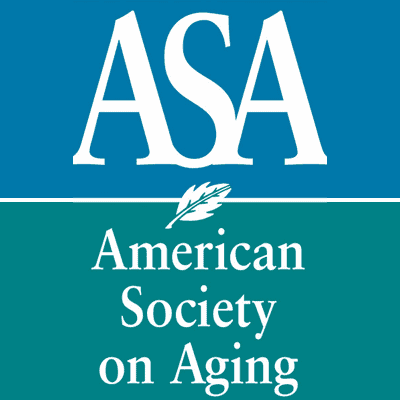A passionate elder rights champion and advocate for nursing home reform.
As hard as we fight on behalf of our clients, we believe our responsibility goes beyond legal representation. In addition to his work as a nursing home abuse attorney, Ed Dudensing is a passionate elder rights champion and advocate for nursing home reform. He has written a number of articles decrying the malfeasance of for-profit nursing home chains and calling for greater regulatory oversight of the elder care industry.
Scroll down for selected extracts from Mr. Dudensing’s recent op-eds, and links to the original publishers.
•••
Over 350 COVID-19 deaths expose California assisted-living homes

This is an excerpt from Ed Dudensing’s article in the East Bay Times. Read the full article here.
Problems in California’s nursing homes are no secret. For years, the sprawling industry has attracted attention and lawsuits. Meanwhile, the separate assisted living business has largely flown under the radar, quietly gaining broad popularity as baby boomers continue to age.
With the spreading COVID-19 pandemic, however, the dangers that assisted living centers pose to the health of elderly Californians are coming into focus. Inadequate staffing, lack of trained medical personnel, lax infection control, and the use of dangerous psychotropic drugs to control behavior have for too long been systemic problems for the industry.
•••
The State of Elder Care

This is an excerpt from Ed Dudensing’s article on Medium. Read the full article here.
When a confused and distressed Roger Curry was abandoned outside a hospital in Herefordshire in 2015, he had no recollection of how he got there or where he was from. He spent the next several months in a nursing home, while British police worked with Interpol to identify him. It emerged that Mr. Curry had been a victim of abuse: abandoned by a son who thought his father would receive better care in another country.
And, despite his cruel actions, he wasn’t wrong.
A Guardian report from last year noted how well looked-after Mr. Curry was in the nursing home, where no money changed hands in return for his care. No fees, insurance, or co-pays. No price gouging on his dementia medication. The only source of funding that contributed to Mr. Curry’s good standard of care was the British taxpayer.
How does this sad situation speak to the state of elder care in the US? Why would someone prefer to abandon his father across an ocean rather than just, say, in a far flung corner of his own country?
The overwhelming cost of healthcare across the US is the reason Mr. Curry ended up in the UK — though it could just as easily have been Canada. Or Japan. Or Norway, Sweden, Denmark, New Zealand, Switzerland, Vietnam, China, Singapore… the list of countries, from Albania to Zambia, where you can walk in off the street and receive healthcare at low or no cost is long and varied. The US is conspicuous by its absence.
•••
Assisted Living is Health Care, Not Just Simple Housing

This is an excerpt from Ed Dudensing’s article in The Sacramento Bee. Read the full op-ed here.
“California’s rapidly aging population, and the challenges posed by this so-called “gray wave,” have sparked much discussion among health care experts and policymakers. Gov. Gavin Newsom’s Master Plan for Aging, scheduled to be unveiled next year, affirms the need for decisive and strategic action. Reforming the assisted living industry must be a part of this strategy. The graying of California has been a boon for assisted living programs, as families look for alternatives to traditional nursing homes for loved ones who are living longer. Assisted living centers appear attractive because they more closely resemble homes than hospitals, with comfortable living spaces, social programs and other amenities. But as the popularity of assisted living continues to grow – and with it the economic clout of corporate owners – oversight and sound health care standards and practices have lagged, imperiling vulnerable people. We can attest to this firsthand: Recently, one of us represented the family of a 77-year-old resident of the long-term care mega-provider Eskaton, who choked to death after she was given powerful sedatives to chemically restrain her.”
•••
Coronavirus pandemic requires renewed focus by California policymakers on elder care

This is an excerpt from Ed Dudensing’s article in CalMatters. Read the full op-ed here.
For California’s seniors, the coronavirus pandemic is an especially terrifying crisis. For the state, it is also a powerful signal that gaping loopholes in protections for this vulnerable and growing population must change.
As a population, people over 70 tend to have weaker immune systems and more underlying conditions that impede their ability to fight the virus. They are also more likely to reside in group living situations, in close quarters. Waves of COVID-19 deaths in nursing homes — first in the Seattle area, then near Sacramento and now throughout the nation — have underscored this grim reality. So far, Californians over 65 have made up at least a quarter of the state’s confirmed cases of COVID-19.
But regulations, particularly for assisted living facilities, are perilously behind the curve in safeguarding California’s elders from this virus. Fortunately, Gov. Gavin Newsom’s Master Plan on Aging initiative, currently underway, presents an opportunity to aggressively address this danger and take steps to protect millions of older Americans.
•••
The Eldercare Industrial Complex: Favoring Corporations Over Care

This is an excerpt from Ed Dudensing’s article in the March-April 2020 edition of Aging Today. Subscriptions can be found here, as well as a link to the full online version of the article.
“Who owns nursing homes? The answer often depends upon who is asking. If a family caregiver is being shown around a leafy facility with the intention of shelling out thousands of dollars each month for their older loved one to reside there, corporate owners spare no expense in flaunting untrammeled devotion to their residents’ comfort, health and well-being. If, like me, you’re an elder abuse attorney with questions about a fatal abdication of care, the red carpet is rolled back up, the owners recede into the shadows and the facility claims to be barely keeping its head above water.
Eldercare facilities being gobbled up by private equity is nothing new. Proprietary chains have been owning and operating nursing homes since at least the 1960s, and the corporatized model of eldercare has been dominant for 40 years. A 1986 paper showed that more than 75 percent of nursing homes nationwide were owned by for-profit interests, a trend that has continued unabated.
But big money and remote management have not translated into greater accountability or higher standards of care. Quite the opposite.”
•••
California is Facing an Elder Abuse Crisis

This is an excerpt from Ed Dudensing’s article in FizzLaw. Read the full article at fizzlaw.com.
“As an elder abuse lawyer, I’ve seen firsthand what happens when powerful corporations fail vulnerable people by putting profits before care. I recently represented the family of a 77-year-old woman who choked to death while under the care of Eskaton, a mega-provider with long-term-care facilities throughout Northern California. Her death was attributed to the improper administration of Ativan, a powerful sedative used as a chemical restraint. A Sacramento jury later awarded a record $42.5-million verdict against Eskaton. The case raised serious questions about inadequate training and insufficient staffing levels. It also highlighted wider concerns about subpar corporate oversight and regulations.”
•••
The eldercare industrial complex: favoring corporations over care

This is an excerpt from Ed Dudensing’s article in Aging Today (now Generations Today). Read the full article.
The increasing corporatization of skilled nursing facilities is a root cause of the hidden national scandal of elder abuse.
Who owns nursing homes? The answer often depends upon who is asking. If a family caregiver is being shown around a leafy facility with the intention of shelling out thousands of dollars each month for their older loved one to reside there, corporate owners spare no expense in flaunting untrammeled devotion to their residents’ comfort, health and well-being. If, like me, you’re an elder abuse attorney with questions about a fatal abdication of care, the red carpet is rolled back up, the owners recede into the shadows and the facility claims to be barely keeping its head above water.
Call 916-448-6400 to receive a free case evaluation from an elder abuse lawyer in Los Angeles, San Francisco, or Sacramento.